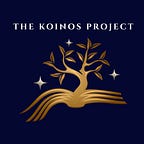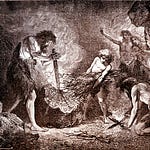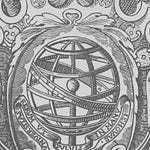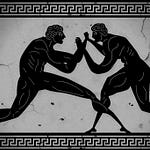THE KOINOS PROJECT is an online educational platform restoring humanity to the Humanities: a place for the intellectually curious, but educatedly stunted searching for something more—for a true mythos. Subscribe now to stay up to date on all our offerings.
Study guide to The Inward Morning by Henry Bugbee pg. 54-78
“Indeed true deeds, even when wrought with the tongue, seem massive with the vast silence from which they emerge. There is this silence which fosters endurance and begets the steadfastness of men: a silence scattered with stars and cloven into rhythmical wash beneath the bows of the ship.” (54)
In this second section of the text, Bugbee presents a range of challenges to what might be summed up as the “modern” attitude: the drive to not only know the world in some final, all-encompassing sense, but to become the creators of our own world. Although these are diametrically opposing desires, they are ultimately conjoined twins, he reveals, born out of the same metaphysical belief: nature is mute and has nothing to tell us about how we ought to live.
The first may be summed up as “rationalism,” the second as “romanticism” — with the latter arising out of disillusionment with the former, and then attempting to proactively build off of this disillusionment. When married together, they become Scientism: the belief that through sufficient knowledge-acquisition we can overcome the human condition to create a new world of our choosing. Scientism is science become ideology, which (as is the case with all ideologies) attempts to impose itself upon the world — without paying heed to what the world is.
In our opening question, we discuss two opposing ways Bugbee presents on how we come to know the world: “understanding in order to believe,” and “believing in order to understand.” The first is the modern, scientistic view. Bugbee believes that if you really study the phenomenon, though, it is clear that all human beings actually practice the second.
All knowledge-acquisition rests upon a belief that there is something rather nothing that we are capable of knowing. Bugbee calls this “faith.” Without a faith in the regularity of the world — that the world, as Aristotle would say, tends “always or for the most part” to act in certain ways — there would be no drive for knowledge because in principle there would be nothing to know. Everything would be random and incomprehensible. The act of science rests upon faith, so to speak, that the sun will always rise again tomorrow. But why do we believe this; what ground do we have to support it?
The correlate to this alternative approach to the natural world Bugbee explores is a faith that the world also speaks to us about how we ought to live — that there is a “something” deeply embedded in the nature of things that calls out and beckons us to live and act in certain ways. This is the true meaning of the word “vocation” (from the Latin vox, “voice”). The world, Bugbee believes, is calling us to do something particular with our lives, something that only we as an individual are capable of.
What we practice today may generally be described as a “scientism of the soul.” It is the modern attitude turned inward: we can “hack” ourselves to become whatever we wish. Otherwise put, it takes the knowledge acquired by rationalism and employs it to romantic ends. But as Bugbee challenges, “I do not think that we can be, or would want to be, professionals — experts — in the conduct of our lives.” (41) What does the alternative to this look like? Listen and find out!
















